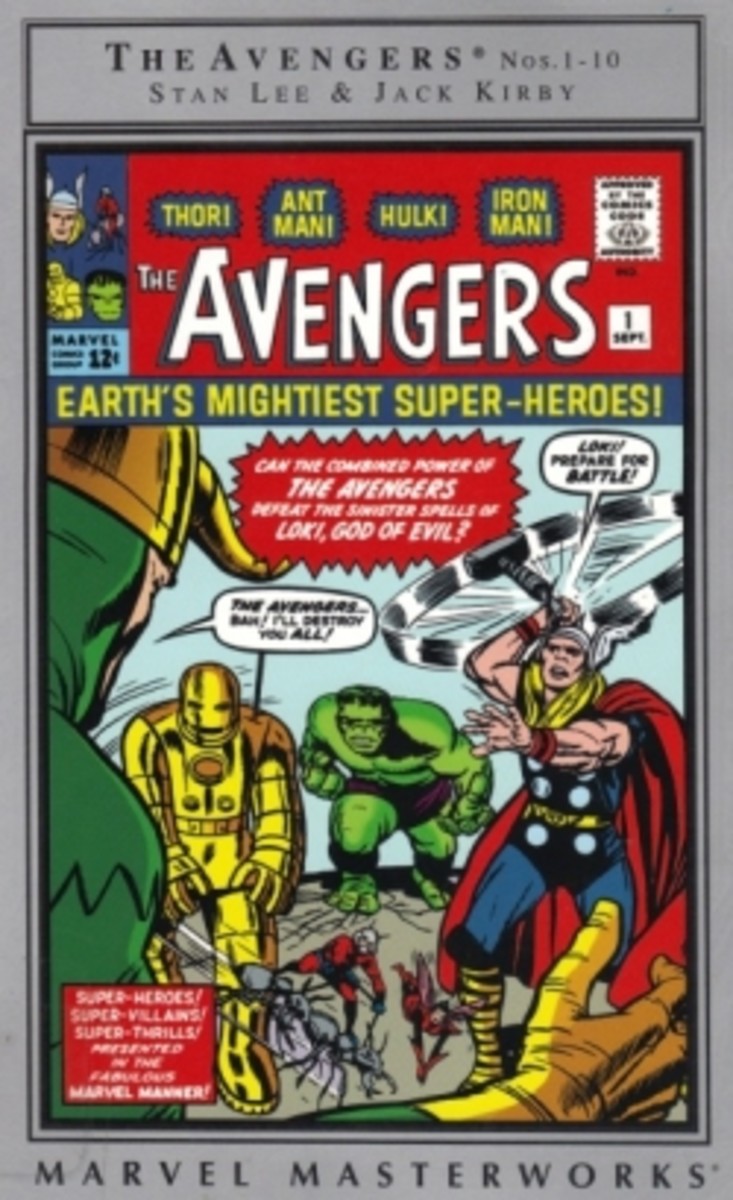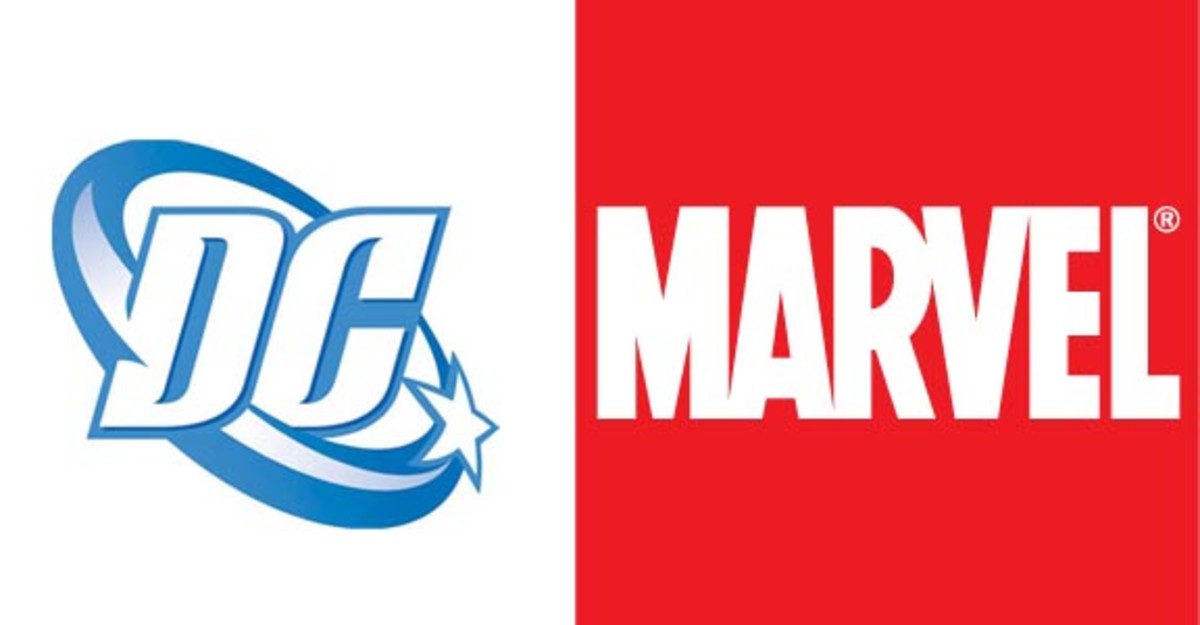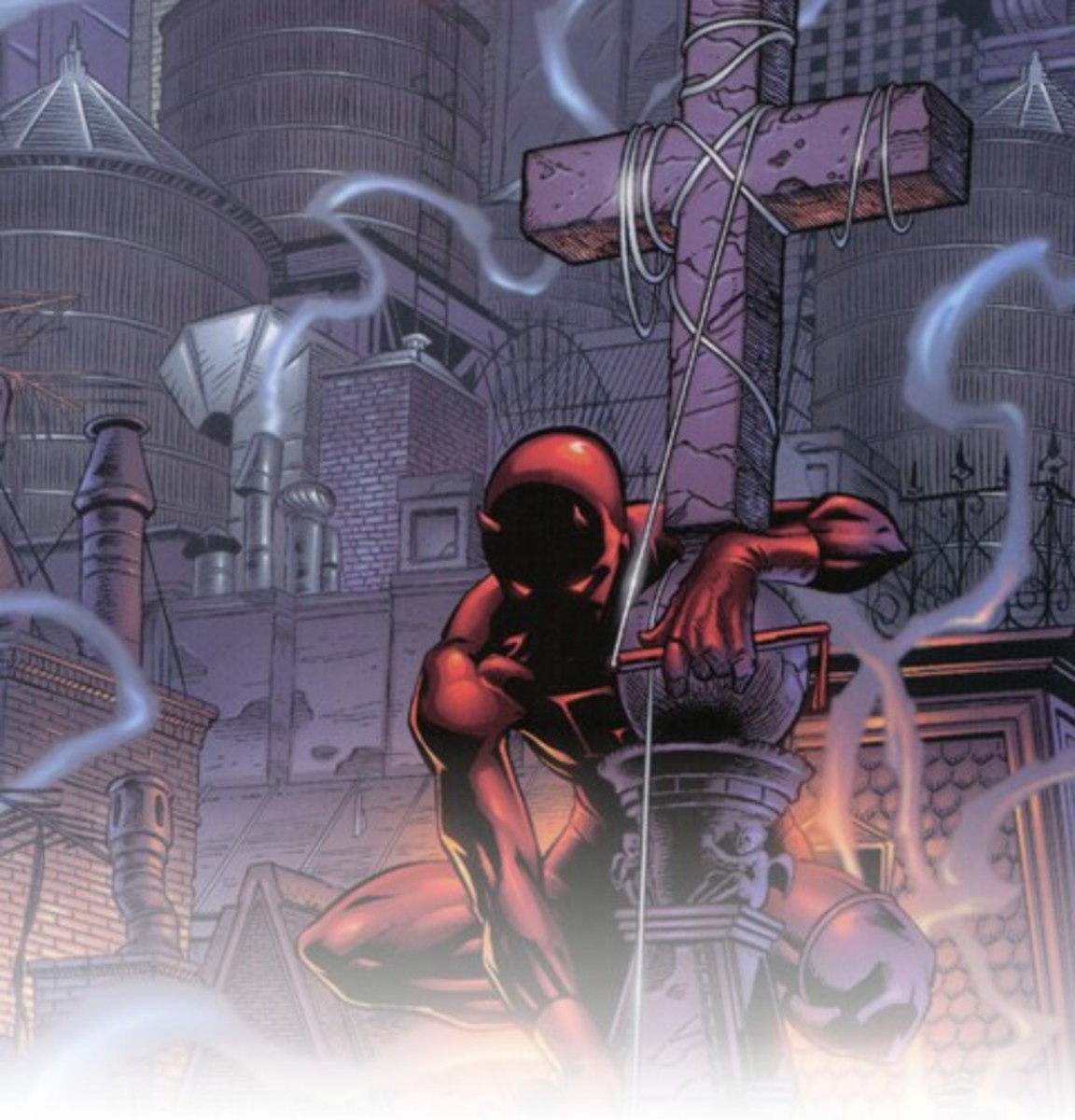CAPTAIN AMERICA ON-SCREEN
Captain America, one of the greatest comic book super-heroes, may not have as varied a mass media career as other famous super-heroes, at least for most of his four-color career. Yet, in the past few years, the Star Spangled Avenger’s stock has greatly increased -- partly as a result of appearing in several highly successful feature films, a remarkable feat, given the fact that Captain America (the creation of legendary comic book talents Joe Simon and Jack Kirby) first debuted in 1941, and had to go into comic book retirement (twice) before he was successfully revived in 1964.
Captain America’s first on-screen appearance came almost three years after his comic book debut, when Republic produced a 1944 movie serial in which the character (played by Dick Purcell) on-screen was somewhat different from his comic book counterpart – including the fact that the wings on Cap’s mask were missing, his real name wasn’t Steve Rogers (in the serial, it was Grant Gardner) and that he wielded a gun instead of his famous red, white, and blue shield; despite those changes, the serial proved to be a great success. However, working on the Captain America serial ultimately took a toll on Purcell’s physical health; the actor died in mid-April 1944, while the serial was still playing in movie theaters.
By the late-1940’s, Marvel Comics (first called Timely in the late-1930's and 1940's – and later, Atlas during the 1950's) retired Captain America and other fellow super-heroes like the Sub-Mariner and the original Human Torch, mostly because the popularity of comic book super-heroes were declining in the post-World War II era. In 1953, however, Captain America, as well as the Sub-Mariner and the Human Torch were briefly revived in the comic books before they were retired (again) the following year. It wouldn’t be until 1956 when the comic book super-heroes’ popularity were revived – first by DC Comics (thanks mainly to editor Julius Schwartz), then by Marvel a few years later, when Stan Lee, Jack Kirby, and Steve Ditko introduced popular super-heroes like the Fantastic Four, Spider-Man, and the Hulk. In 1964, Captain America returned in Avengers (1st series)#4, where it was revealed that the super-hero spent twenty years in suspended animation near the end of World War II, when his partner Bucky Barnes was killed in action.
In 1966, Captain America made both his animated cartoon and TV debuts, when serialized adventures starring him and other Marvel characters like the Hulk and Iron Man made up the syndicated Marvel Super-Heroes TV series, produced by animators Grant Simmons, Ray Patterson, Robert Lawrence, and Steve Krantz’s production companies – if the animation on the TV series wasn’t top-notch, at least the stories were faithful to what was being published in the comic books at that time. During the 1970’s, Captain America was among the various comic book and TV heroes (including Superman, Batman, and Spider-Man) whose comic book adventures were adapted into audio adventures that were produced by Peter Pan’s Power Records imprint.
During the 1970’s, Captain America made few on-screen appearances in film and on TV – with one of the oddest being the 1973 Turkish feature film 3 Dev Adam (3 Giant Men), in which Captain America squared off against – believe it or not – a villainous version of his fellow Marvel super-hero Spider-Man. In 1979, Universal produced two Captain America TV-movies which aired on CBS, starring Reb Brown in the title role; the results, however, proved to be less successful than what Universal did with The Incredible Hulk TV series, which also aired on CBS during that time. During the early-1980’s, Captain America made guest appearances on the two animated Spider-Man TV series produced by Marvel’s animation studio (formerly DePatie-Freleng) which aired on both NBC and in syndication, in which the animation was somewhat better than what was produced in the mid-1960’s.
In 1990, a Captain America feature film, starring Matt Salinger (the son of author J.D. Salinger) in the title role, was produced by Cannon but wasn’t released until two years later. The film’s overall lack of quality was but one reason why it didn't do well with both critics and audiences, even in an era when Warner Bros.' Batman feature films did well at the box office. Captain America’s other on-screen appearances during the past few decades have included guest appearances on various animated TV series produced by Marvel, including Spider-Man, X-Men, The Super-Hero Squad Show, and The Avengers: Earth’s Mightest Heroes -- as well as appearing in several direct-to-video animated features.
Since the late-1980's, Captain America has appeared in numerous video games, with the Star Spangled Avenger taking center stage in a significant number of them -- one of the most recent video games to spotlight Captain America and the other Marvel super-heroes was Disney Infinity: Marvel Super-Heroes, which was released in 2014, just five years after Disney bought Marvel in 2009, joining other entertainment properties now owned by the film studio, including Jim Henson's Muppet characters and George Lucas's Star Wars franchise.
In 2011, Captain America returned to motion picture screens, as Chris Evans, who played the second Human Torch in the two live-action Fantastic Four feature films during the 2000’s, played the title role in Captain America: The First Avenger, which chronicled the super-hero's origin and exploits in both World War II and the present-day world, including battling the Red Skull, the Nazi villain who's been Captain America's greatest enemy since the Simon/Kirby stories of the early-1940's. The box office success of Captain America: The First Avenger would result in not only two sequels -- Captain America: The Winter Soldier (2014) and Captain America: Civil War (due out next year) -- but also Captain America’s appearances in the first two live-action Avengers feature films, including Avengers: Age of Ultron, which was released this past spring (with two more set for release by decade’s end).
Though Captain America has changed in many respects in almost the past century (including several people aside from Steve Rogers briefly wearing the hero's patriotic costume) -- his devotion to helping to protect and preserve the noble and most important of American principles have kept the character relevant, even in the post-9/11 world. There's no question that Captain America's continued success -- not only in the comic books, but also in mass media -- will keep him in the public eye for a long time to come.
Please visit John Lavernoich's official website: johnlavernoich.weebly.com









